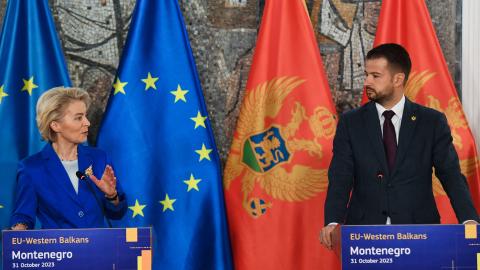newtownrrt.org – Montenegro, a small country with a rich history, has been playing an increasingly significant role in the Balkans since gaining independence in 2006. Its strategic location, historical ties, and pro-Western orientation have positioned Montenegro as a key player in regional dynamics. This article analyzes Montenegro’s role in the Balkans and its efforts to foster regional cooperation.
Strategic Location and Historical Ties
Montenegro’s strategic location on the Adriatic coast and its historical ties with other Balkan nations provide a strong foundation for its regional influence. Throughout history, Montenegro has been a crossroads of civilizations, contributing to its diverse cultural heritage and its ability to act as a bridge between different regional actors.
Pro-Western Orientation and NATO Membership
Montenegro’s pro-Western orientation has been a defining feature of its foreign policy. This orientation was solidified with its accession to NATO in 2017, making it the first country from the former Yugoslavia to join the alliance. NATO membership has not only enhanced Montenegro’s security but also its regional influence, as it serves as a model for other Balkan countries aspiring to join Western institutions.
Regional Cooperation and Diplomacy
Montenegro has been actively involved in various regional initiatives aimed at fostering cooperation and stability in the Balkans. It participates in the South-East European Cooperation Process (SEECP), the Central European Initiative (CEI), and the Adriatic-Ionian Initiative (AII), among others. These platforms allow Montenegro to engage with neighboring countries on issues such as economic development, security, and cultural exchange.
Economic Cooperation
Montenegro has sought to enhance economic cooperation with its Balkan neighbors by promoting trade, investment, and infrastructure projects. The country’s efforts to improve its transportation networks, such as roads and ports, not only benefit its own economy but also facilitate regional connectivity.
Security and Stability
Given its NATO membership, Montenegro plays a role in promoting security and stability in the Balkans. It participates in regional security initiatives and supports efforts to address transnational challenges such as organized crime, terrorism, and cyber threats.
Cultural and Educational Exchanges
Montenegro recognizes the importance of cultural and educational exchanges in fostering mutual understanding and cooperation. The country hosts various cultural events and educational programs that bring together people from different Balkan nations, promoting a sense of regional identity and unity.
Challenges and Opportunities
While Montenegro’s role in the Balkans is growing, it faces several challenges. The country must navigate complex regional relationships, including historical tensions and divergent political orientations among Balkan states. Additionally, economic disparities and social issues within the region can hinder cooperation efforts.
However, these challenges also present opportunities for Montenegro to demonstrate its leadership and commitment to regional stability. By addressing these issues through dialogue and collaboration, Montenegro can further solidify its position as a key contributor to Balkan integration and cooperation.
Conclusion
Montenegro’s role in the Balkans is characterized by its strategic location, historical ties, pro-Western orientation, and active participation in regional initiatives. Through its efforts to foster economic cooperation, security, and cultural exchanges, Montenegro is playing a vital role in promoting regional integration and stability. As the country continues to navigate the complexities of Balkan politics, its commitment to cooperation and diplomacy will be essential in shaping a more united and prosperous region.
